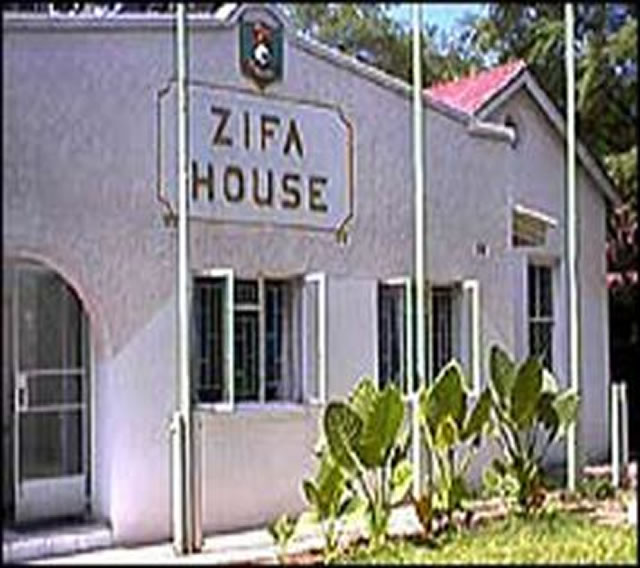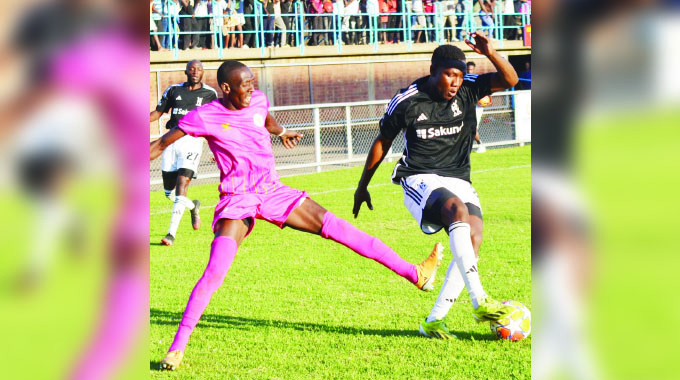Disband PSL to save Zifa

Farayi MungaziSpecial Correspondent
A FEW years ago, at the end of an interview, a former Zifa chairman grumbled about his time at the association: “Do you know how it feels to be up to your eyes in debt? When I was running that place, it was the most stressful time of my life.”
What he meant was that leading the body that governs Zimbabwe’s most popular sport is nigh on impossible. At the best of times, it’s a thankless task. Zifa is often pilloried by coaches, players and fans whenever things go awry for the national team. He might as well have added that working at Zifa in any capacity should come with a health warning.
Constantly the brunt of public hostility and rarely receiving credit for anything, it begs the question: why would anyone in his right mind want to be Zifa boss? There are, of course, many people who relish the post as a dream assignment rather than a poisoned chalice. But, if the truth be told, never has a job ruined so many reputations.
The Zifa presidency is no longer the attractive proposition it was during the days of the late Nelson Chirwa and Job Kadengu. The association is drowning in a sea of debt, with a list of creditors as long as the Harare-Bulawayo highway. Suffice to say, Zifa’s prospects of escaping the relentless cash squeeze any time soon are pretty remote.
Philip Chiyangwa made bullish noises when he became Zifa boss in December last year. I’m not holding my breath. The ostentatious businessman is staring at a mammoth $6 million black hole. This is why he tried to wash his hands off the debt in June by dissolving Zifa and resurrecting it as a new entity called the National Football Association of Zimbabwe (Nafaz). Pontius Pilate would have been impressed!
Over the years, Zifa’s financial predicament has been worsening to the nadir reached in March 2015 when the national team was expelled from the preliminary qualifying competition of the 2018 World Cup without kicking a ball. The expulsion followed the non-payment of an outstanding debt of $60 000 owed to former national coach Valinhos. The Brazilian was not paid despite several warnings and deadlines.
The annual Fifa grants have saved many a day, but oftentimes Zifa has found itself propped up by individuals with all sorts of agendas. Something has to change — and it goes almost without saying that, unless an urgent solution is found, our various national teams could be condemned to football’s backwaters for many years to come.
Could it happen that Zifa might one day be closed for business? It’s an unpalatable thought, but Zifa is facing the very real prospect of ceasing to exist. However, in my view, the problems at Zifa House have been, and are still, being misdiagnosed. In saying this, I must state that I’m neither a Zifa apologist nor Chiyangwa’s spin doctor.
After all, I include myself among football lovers who have shown remarkable resilience in the face of chronic mismanagement from the men and women who populate the game’s corridors of power. But when analysing Zifa’s ongoing trauma, it’s clear to me that the principal cause of its travails is not just corruption or mismanagement.
True, Zifa has had its fair share of incompetent and corrupt officials over the years. True, a lot of money has disappeared without trace at Zifa. True, many of the wounds that Zifa has suffered have been self-inflicted. Not every wound though. Let me sum up the elephant in the room in three words: Premier Soccer League.
Many people, myself included, regarded the birth of the PSL in 1992 with concern. Where would it end, if not with catastrophic consequences for the governing body and its ability to effectively run the game? The extent to which it is healthy for clubs to run a league independent of Zifa is a matter of conjecture. So too is the question of whether competition with Zifa for sponsorship dollars is the right sort of competition.
Before the PSL was born, Zifa made money from corporate sponsorship and gate takings. But those financial lifelines were cut off by the advent of the PSL. And once they sniffed the money, the PSL management lost sight of anything beyond the end of their nose. I humbly submit to you, dear reader, that the PSL was an ill-thought, self-serving idea that should never have been allowed to happen.
Those who banged the drum for the PSL’s creation will bristle at this, but its existence has had a corrosive effect on Zifa’s bottom line and the knock-on effects will take many years to deal with. Some will argue that Chiyangwa should knuckle down and get on with the job at hand. But the reality is that no one, no matter how clever, can run an organisation with sky-high overheads but no reliable, regular source of income.
Things are desperate. You don’t have to be a financial wizard to know that the bill for national teams — juniors, seniors (men and women) — to fulfil their international obligations is a hefty one. When you add Zifa’s other commitments, it’s quite remarkable that, apart from the 2018 World Cup aberration, they have managed to keep our national teams afloat.
Even as Zifa plummets into inexorable descent, there are many who would prefer the status quo. They ignore the fact that Zimbabwe’s economy, even at its healthiest, cannot support both Zifa and the PSL. This explains the feuds between the two bodies, especially in the 1990s, which only succeeded in making football less attractive to sponsors.
Think of it this way: Is there a single African country with a large enough economy to sustain the Zimbabwean model? In a word, no. Not even South Africa where Safa feeds on the crumbs falling off the PSL table. There are two main reasons why it works in England: the size of the economy — which enables clubs to be highly commercial — and the billions of dollars from domestic and international broadcast rights.
The terribly flawed thinking was that the PSL in Zimbabwe would replicate the success of its English counterpart. Things have only got worse since.
Our football needs radical restructuring. The two-tier system that has left Zifa facing an existential crisis must go. Bring back the Super League!
Mungazi is a Zimbabwean sports journalist working for the BBC in London.











Comments